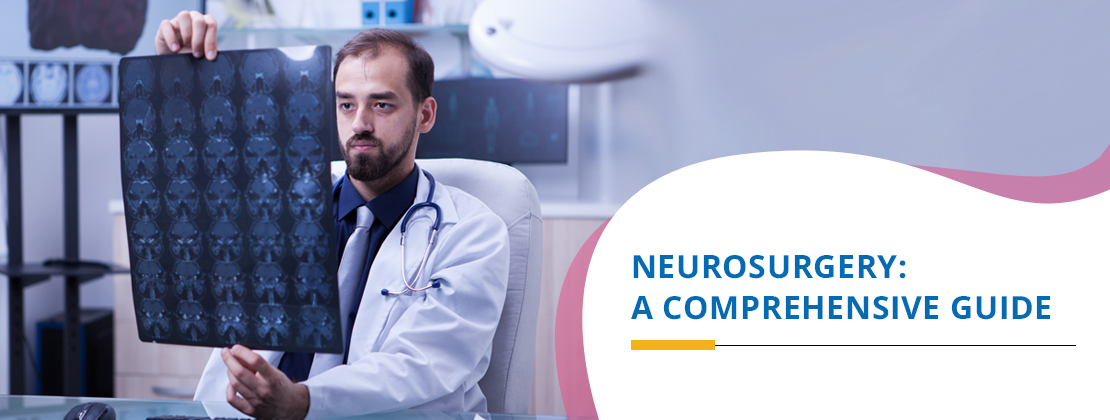
Home / Blog / Neurosurgery: A Comprehensive Guide
For many, the term neurosurgery conjures images of intricate procedures and complex medical terms. However, in the evolving world of healthcare, it’s essential to break down this vast topic for a wider audience. Whether you or a loved one is contemplating a neurological procedure, or you’re merely keen to understand more, this guide offers an overview of neurosurgery in a manner accessible to all. From common types to potential risks, we’ve got it all covered.
Table of Contents
Neurosurgery, often referred to simply as neurological surgery, involves the diagnosis, prevention, treatment, and rehabilitation of disorders affecting any part of the nervous system. This includes the brain, spinal cord, peripheral nerves, and the cerebrovascular system. Unlike the images of surgeries often seen in media, neurosurgery isn’t always about brain surgery; it encompasses a much broader range of procedures.
Understanding the circumstances that might necessitate neurosurgery is crucial for both patients and their caregivers. Neurosurgical interventions can be life-saving and can greatly improve the quality of life for patients facing severe neurological conditions. Here’s a more in-depth look:
Brain tumors are abnormal growths that arise in the brain or its immediate surroundings. They can be broadly categorized into:
The brain, while well-protected, can still be susceptible to infections. Conditions like meningitis (infection of the membranes surrounding the brain) or brain abscesses (pus-filled pockets within the brain) are potentially life-threatening. Neurosurgery can be instrumental in:
Commonly referred to as “water on the brain”, hydrocephalus occurs due to an imbalance in the production and drainage of cerebrospinal fluid (CSF). Without treatment, it can lead to:
Accidental head injuries can lead to conditions like hematoma (a collection of blood outside blood vessels), cerebral contusions (brain bruises), or skull fractures. The primary goal of neurosurgery in trauma cases is:
Depending on the tumor’s nature, size, and location, surgeons might opt for various methods, including traditional open surgery or minimally invasive techniques.
Brain aneurysms are weak spots in the walls of blood vessels that can bulge and fill with blood. Clipping involves placing a tiny clip around the aneurysm’s base, isolating it from normal blood circulation, thus preventing rupture.
Contrary to the name, this isn’t “surgery” in the traditional sense. It employs focused radiation beams to treat specific areas of the brain. Conditions like tumors, vascular malformations, and certain functional disorders can be addressed with this method.
For some epilepsy patients unresponsive to medications, surgery offers hope. Depending on the epilepsy type and origin, certain brain portions can be removed or isolated to control or halt seizures.
Like all surgical procedures, neurosurgery also carries its own set of risks. These can range from infections, bleeding, and reaction to anesthesia to more severe complications like neurological damage. However, advancements in neurosurgery research and technology have significantly reduced these risks.
Upon realizing the need for neurosurgery, it’s vital to:
As a leading neuro care center, HCG Hospitals prides itself on state-of-the-art facilities, renowned neurosurgeons, and cutting-edge technology. We understand the intricacies of neurological disorders and are dedicated to ensuring that every patient receives individualized care. From the initial diagnosis to recovery, HCG Hospitals remains by your side, ensuring the best outcomes.
Recovery from neurosurgery is as crucial as the surgery itself. Depending on the procedure, patients might need to stay in the hospital for monitoring. Post-operative care includes pain management, physical therapy, and regular check-ups. Always adhere to the post-surgery guidelines and be vigilant about any unusual symptoms.
Neurosurgery, while sounding daunting, is a critical aspect of medical science. With the continuous progress in neurosurgery research and technology, it promises a brighter future for patients with neurological disorders. If you or your loved ones require guidance or treatment, remember, HCG Hospitals’ Neuro Care Center is just a call away. Seek expert care, because your brain deserves the best!
Schedule a Consultation Today! Your health is our priority. If you or a loved one is considering neurosurgery or wants to explore available treatment options, don’t hesitate. Reach out to our experts to guide you through the process. Schedule your consultation now at 7406499999. Your path to recovery begins with a call.